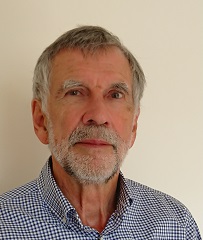Richard Schilizzi
 Professor Richard Schilizzi
Professor Richard Schilizzi
World-leading astronomer honoured
2019 UNE Distinguished Alumni Award Winner
One of the first books Professor Richard Schilizzi remembers reading as a seven-year-old was the sci-fi thriller Lost on Venus, with a heroic space adventurer at its heart. He's assumed a similar leading role throughout his illustrious career, exploring the furthest reaches of our universe.
A gifted and visionary scientist, the world-leading radio astronomer is an expert in the complex technique of very long baseline interferometry (VLBI), at the cutting edge of astronomy and astrophysics, and the author of some 250 scientific papers. However, Richard's greatest legacy will perhaps be the two institutes he helped develop and manage over 40 years to enable ground-breaking research - the Joint Institute for VLBI in Europe (JIVE), at the centre of an array of VLBI telescopes across Europe, and the central office for the Square Kilometre Array (SKA), the world's largest radio telescope - which will advance astronomy for decades to come.
And it all began with a Bachelor of Science (Physics) degree with Honours at UNE, the alma mater now honouring Richard with a Distinguished Alumnus Award.
"I've always been driven by what radio astronomy can tell us about how the universe began and evolved, as well as a strong interest in international scientific collaboration," Richard says. "One of the interesting things about the large trans-national projects I've been involved in is the human aspect of how best to bring people from different social and scientific cultures together to create scientific facilities beyond the capacities of the individual institutes and countries."
In nominating Richard for the award, fellow UNE graduate and former Vice-President of JPMorgan, Dr Garry de Jager, highlighted Richard's capacity for "seeking out the needs for the future, finding support from colleagues, then from institutions, creating new ones if necessary, selling the vision, persuading and charming those who held the purse strings, and then getting results".
Richard, now Emeritus Professor of Astrophysics at the University of Manchester in the UK, is more modest. "I've always been interested in pushing the boundaries of pure science, in research that transforms peoples' views of the universe, but also pushing the boundaries of the instrumentation," Richard says. "I've functioned at the interface of astronomy and engineering in a highly collaborative environment. You are always building on what's gone on before. We had the opportunity to run with things if they looked like they had a good chance of achieving something interesting."
After early-career research in California and the Netherlands, Richard played a leading role in building the European VLBI Network (EVN) and established himself on the global scene when he was instrumental in founding JIVE, and became its first director. The VLBI technique uses radio telescopes physically separated by hundreds of kilometres to study objects in our universe that emit radio waves, providing humanity's sharpest view of these objects and clues to the history and evolution of our universe.
Richard then became the first director of the International Square Kilometre Array (SKA) Project, which has now become a global collaboration between about 100 organisations in 20 countries. He led the SKA project for nine years until 2011, and took it from a loose collaboration of national efforts developing new telescope concepts to a coherent global project able to embark on the final stages of telescope design.
In the succeeding years, preparations for the first phase of the multi-billion Euro mega-facility (eventually to consist of thousands of dishes and up to a million low-frequency antennas) have continued, and construction is poised to begin in Western Australia and South Africa. The SKA facility will be to radio astronomy what the Hubble Space Telescope has been to optical astronomy.
Retirement from the SKA in 2012 was short-lived; Richard was immediately charged with establishing a new SKA Group at the University of Manchester and led the international research and development consortium that developed the hugely important SKA signal transport system.
Collaborating with scientists, governments and potential financiers all over the world on such ambitious projects has demanded consummate project management skills, strategic vision, technological problem-solving abilities, unrivalled diplomacy and passion.
"It was a time of opportunity and we made very good use of it," Richard says. "The science is borderless but the funding and legal aspects are not. These were large projects that required international collaboration and support, but they grew from the grass-roots. The most pleasing thing is that these facilities didn't exist and now they do. That's the best accolade one could have; that you start something up and it keeps going."
The applications of the technological innovations have also been enduring, with a healthy flow of information between governments, industry and academia, and vice-versa. And the possibilities are as vast as the night sky.
"What excites me is all that we have yet to discover about the universe; the exploration of the unknown," Richard says. "We astronomers like to say we look at the sky through our telescopes but what we see is only about 4% of the total energy density in the universe. We don't know what the hell the rest of the dark matter and dark energy is. There is an enormous amount that we are yet to understand."
Fortunately for the international scientific community, pioneers like Richard Schilizzi have laid the foundations for many discoveries to come.

